A gentleman is defined through fine details, including the correct way to hold a glass.
- Red or White Wine Glasses
- Outfit Rundown
- Effervescent Glasses (Flute & Tulip)
- Coupe glasses
- Beer Service
- Martini Glass
- Lowball Glass
- Tall Mixed Drinks (Highball & Collins)
- Margarita Glass
- Shot Glass
- Fortified Wine Glasses (Port & Sherry)
- Snifter
- Water Glass
- Handing a Glass to Someone Else
- The Gentleman’s Rule of Thumb
- Frequently Asked Questions
- The Gentleman’s Guide to Etiquette and Behavior
We’ve previously covered proper table manners, but what about the confusing array of glasses you’re likely to encounter? Often, the conventions of drinking properly aren’t some pointless affectations determined by higher society, and in most cases, they directly improve the imbibing experience.
Rest assured, although it may look confusing, correct glassware etiquette is easier than you might think. Let’s start things off with the glass you’re most likely to encounter when dining: the wine glass.
Red or White Wine Glasses
Do
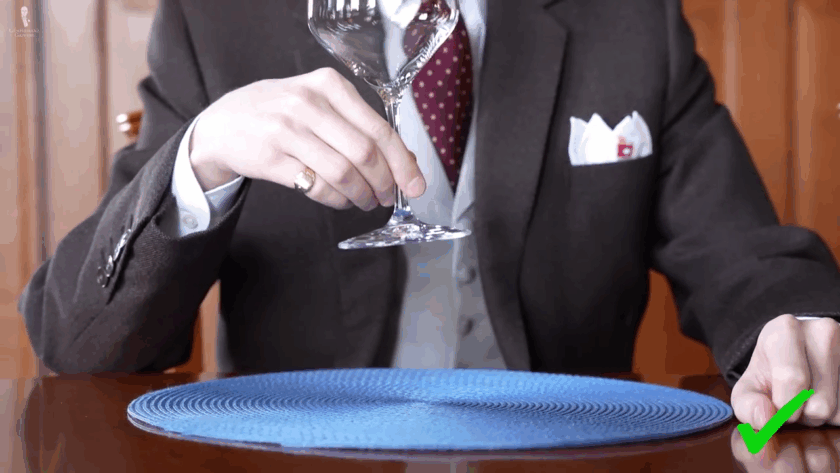
- Always grip the stem—never the bowl—to keep body-heat from warming the wine and dulling its flavour.
- Pinch the stem lightly yet firmly between thumb and forefinger; let the middle and ring fingers steady the glass, or curl your little finger back if you need extra control.
- For added stability, slide your grip slightly higher on the stem toward the bowl’s base, much like balancing a vertical pen.
Don’t
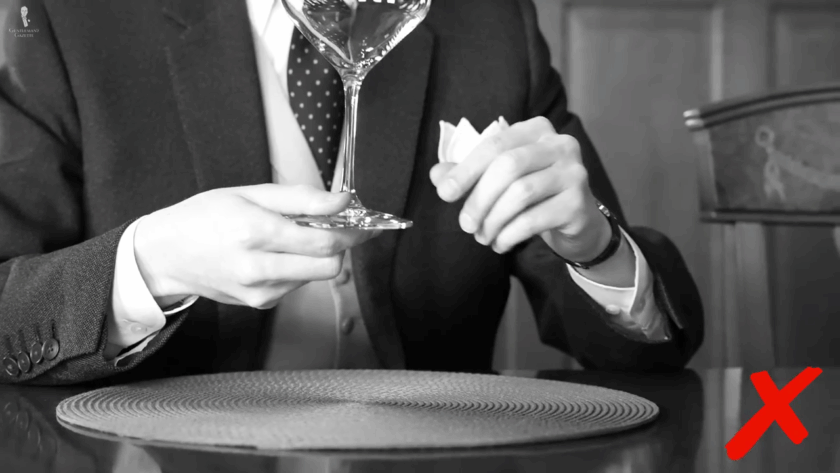
- Avoid clutching the foot of the glass; it tips easily.
- Keep that pinky in: the “pinky-out” pose is long outdated and comes across as affected rather than elegant.
The Bordeaux Wine Primer
Outfit Rundown
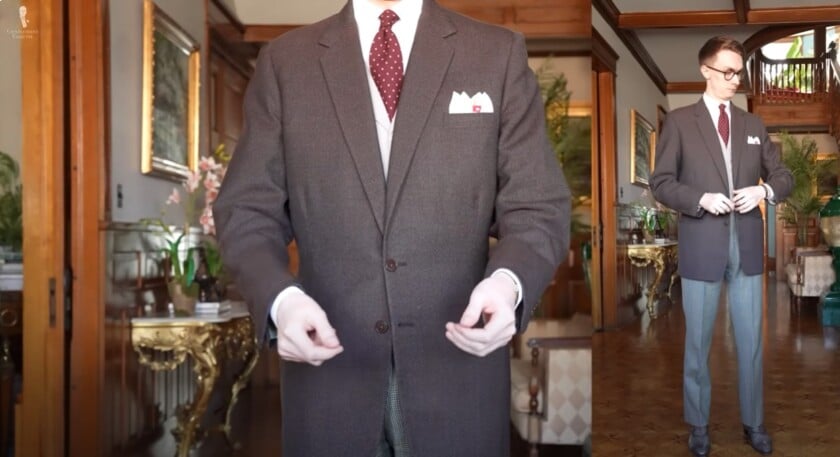
Although wine is often enjoyed with a meal, we feel the best pairing partner for any drink is the right outfit. Today I’m wearing a separate jacket, trousers, and a waistcoat ensemble. The jacket is a standalone piece made of a multicolored Reid & Taylor worsted wool—brown from a distance, yet filled with hidden tones.
Similarly, the trousers are also made from a Reid & Taylor worsted, this time taken from a three-piece suit, with an equally varied amount of colors present in the yarns; it makes wearing and pairing these items particularly easy. The waistcoat is another vintage piece I picked up while we were in London—a light-grey flannel that’s extremely versatile across many outfits.
To pick up on these grey and brown tones, my socks from Fort Belvedere also feature these colors in a two-tone flat knit. Continuing this theme are my grey oxfords from Gaziano & Girling; the patina blends well with the overall ensemble, and the burgundy laces harmonize nicely with the red tones in my jacket.
My shirt is a white cotton twill with a collar shape I particularly like from SuitSupply. I’m wearing a tie from Fort Belvedere in a burgundy wool challis with a yellow-ochre polka-dot design. Also from Fort Belvedere, I’m wearing a white linen pocket square with a hand-embroidered cocktail—one of my favorites, the Negroni.
To top it off, I have a vintage Lorus on my wrist with an octagonal case and a subtle digital dial. Finally, my fragrance from the Roberto Ugolini collection is Giardino di Boboli. Inspired by the famous Italian garden, the mixture of floral and citrus scents reminds me of both the accompanying fruits enjoyed in certain beverages as well as the ideal location for a refreshing drink in summertime.
To add this fragrance, socks, pocket square, tie, or a whole host of other gentlemanly clothing and accessories to your own collection, head to the Fort Belvedere store.
Effervescent Glasses (Flute & Tulip)
Do
Handle the stem—either the lower or mid-stem is fine—to keep the champagne icy. When you’re simply passing the glass or setting it down, it’s acceptable to grasp the foot briefly so the stem remains free for the next hand to take hold.
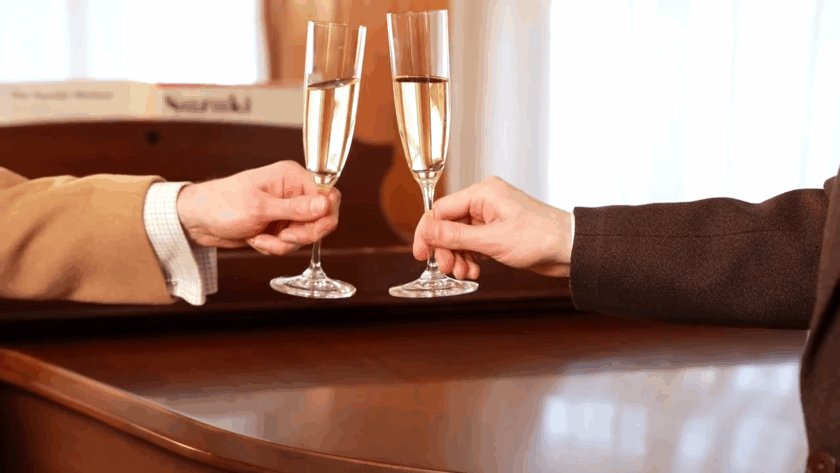

Don’t
Cup the bowl; bubbles go flat faster when they warm.
Coupe glasses
Handle this broad-bowled beauty exactly like a wine flute—by the stem—but a touch higher up.
The closer your fingers sit to the bowl (without actually touching it), the steadier the glass feels when you gesture or take a sip.
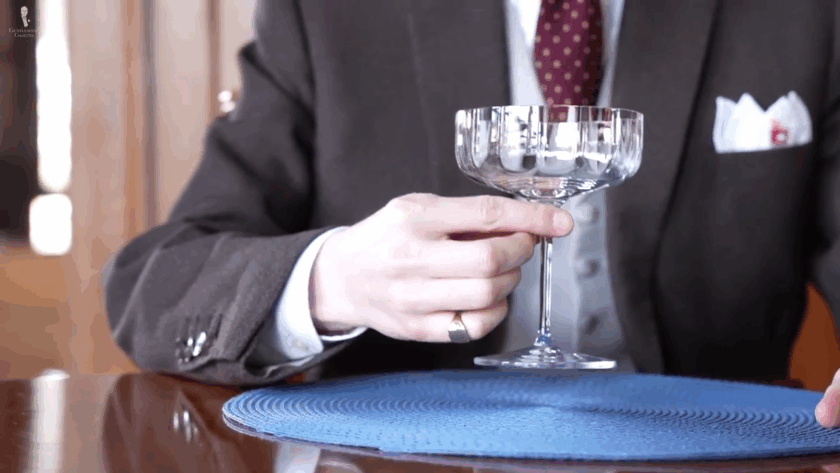
Beer Service
Stein
Do
Grip the handle as if opening a door. If the stein is lidded, keep the lid down until you drink.
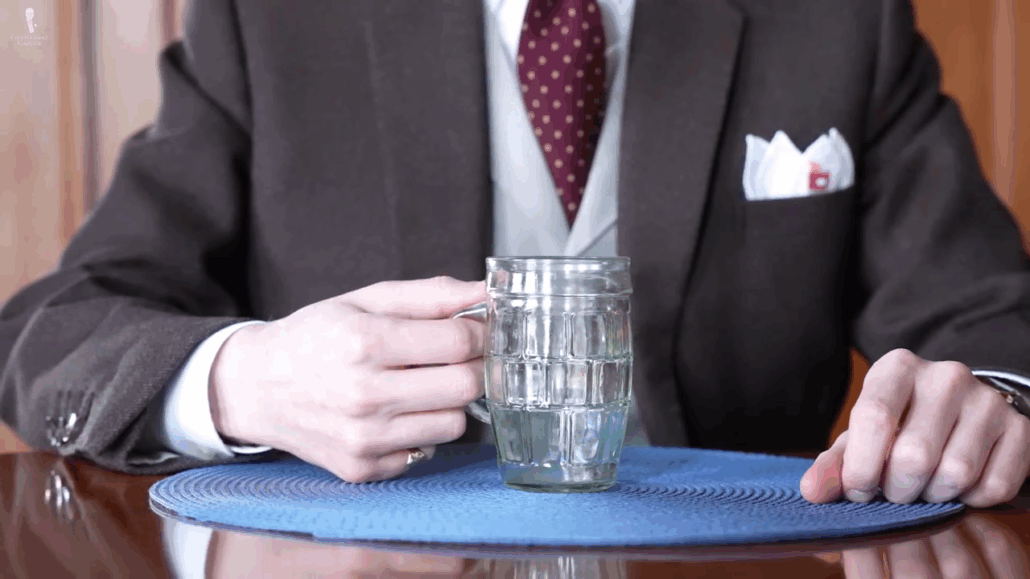
Don’t
Avoid resting your thumb on top of the handle.
Goblet
Do
Treat it like a wine glass and hold only the stem.
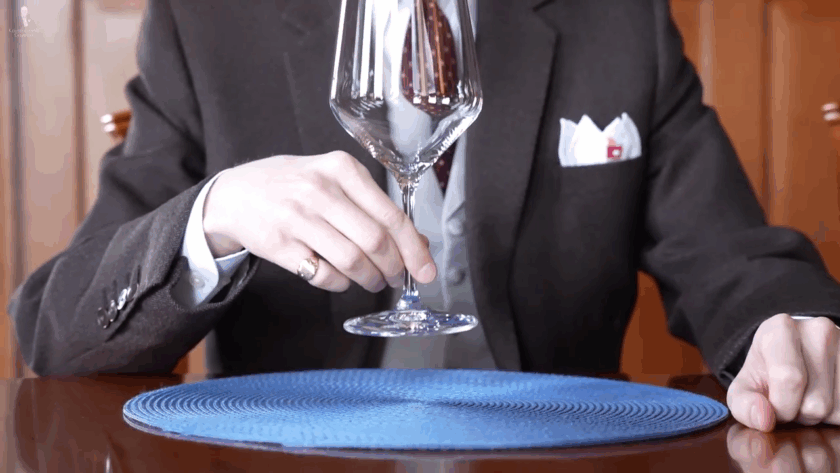
Don’t
Never palm the bowl.
Pint Glass
Do
Wrap your hand low on the glass, then set it down between sips.
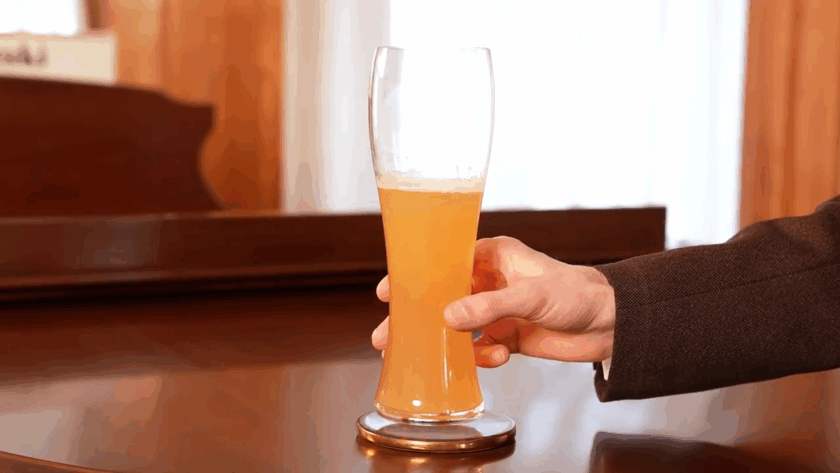

Don’t
Don’t hug the midpoint; extra heat travels up and warms the beer.
A Guide to Glasses & Drinkware
Martini Glass
Martini glasses are similar to wine glasses, but you grip them using your thumb, forefinger, and middle finger because the glass stem is usually thicker; then, stabilize the glass with your ring and little finger.
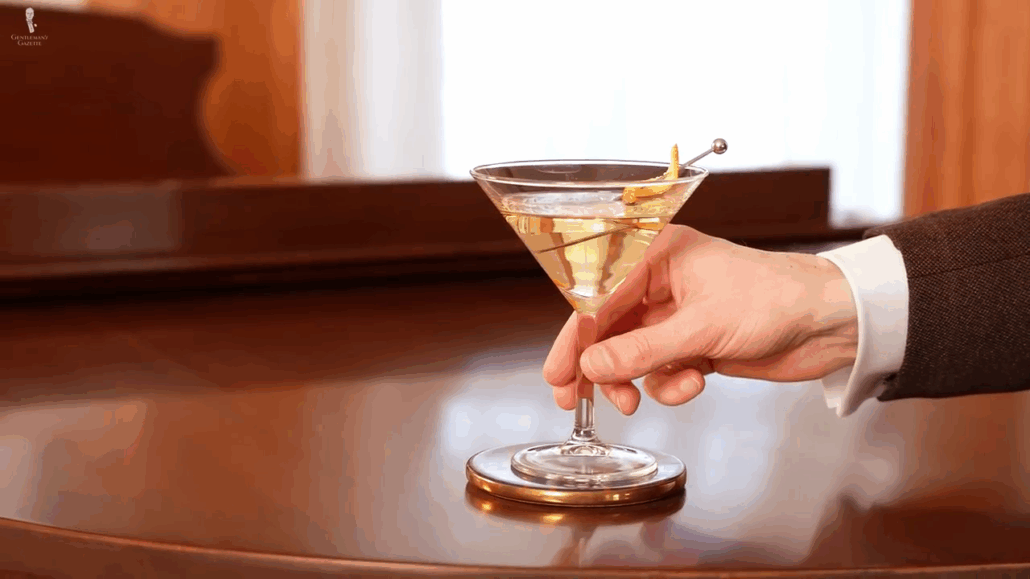
The Martini Guide
Lowball Glass
For classic cocktails like the Negroni, Old Fashioned, or even a whisky neat, grip the glass higher up, aiming above the liquid level, especially if there’s ice present. This prevents body heat from melting the ice prematurely. For neat drinks without ice, you can grip lower since heat transfer is less of a concern.
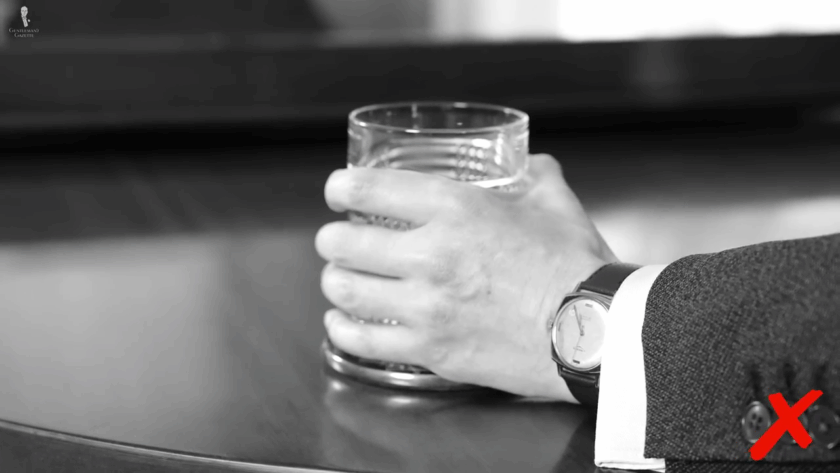
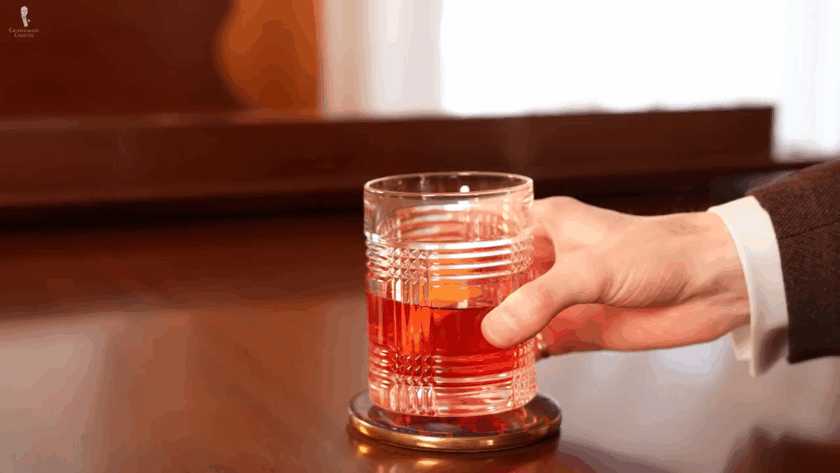
Tall Mixed Drinks (Highball & Collins)
Touch as little surface area as possible: two or three fingers near the base prevent melted-ice dilution.
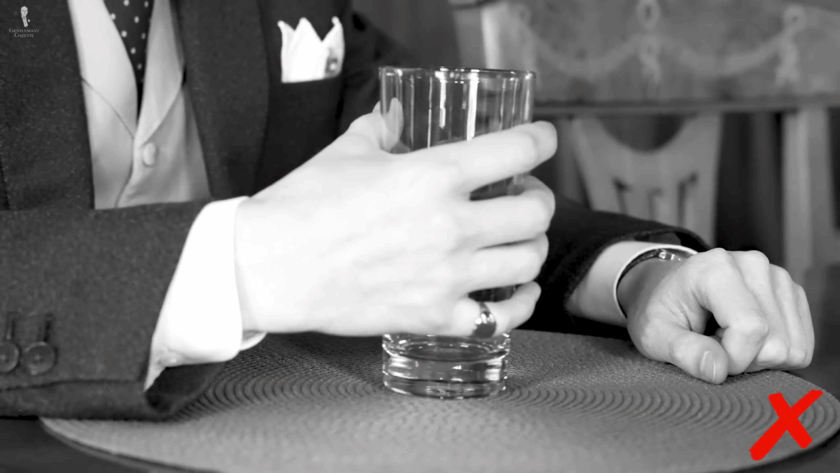
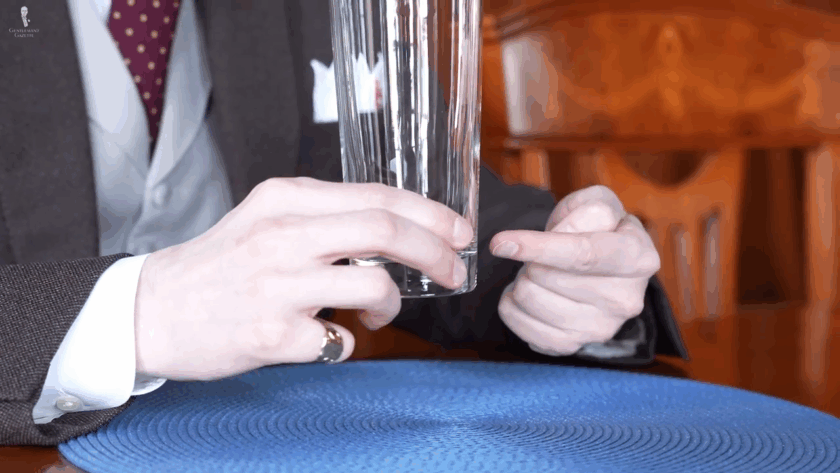
Margarita Glass
Secure high on the stem—never the sugared or salted rim.
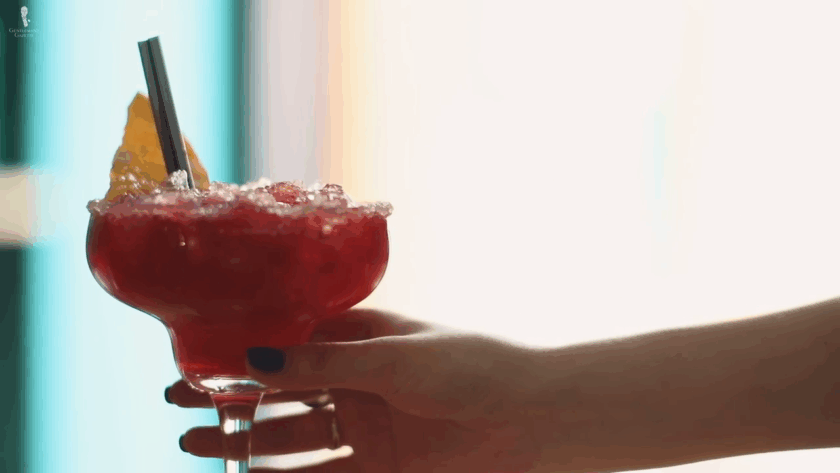
Shot Glass
As a shot is designed to be drunk quickly, you likely won’t be holding this glass long. But, for occasions where you might be offered a sample or something to sip gently from a shot glass, you’ll want to grip lightly in a pinching style with your thumb and only two or three additional fingers at the base of the glass.
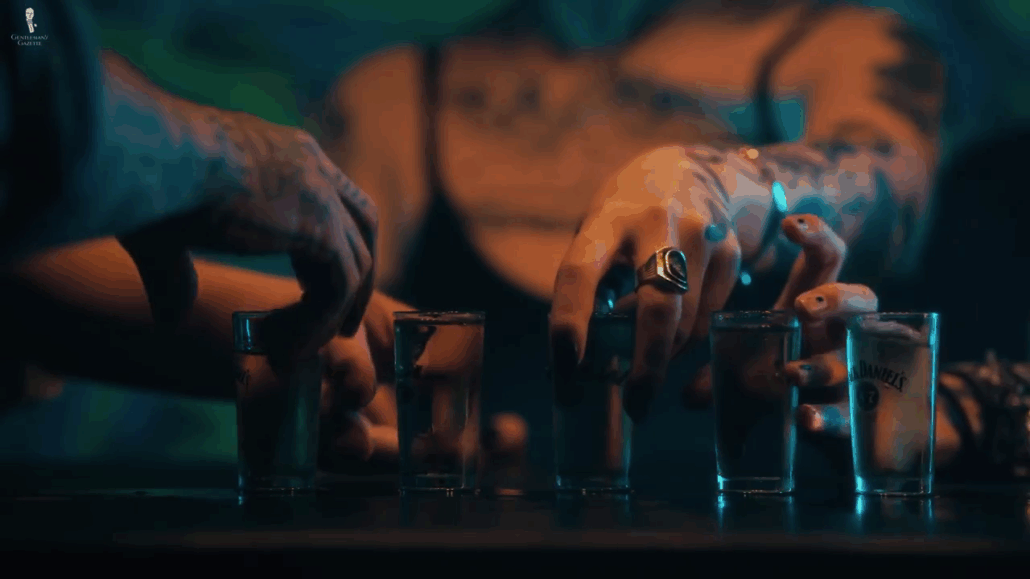
Don’t wrap your hand around it since the excess grip will ruin your dexterity with such a small glass style.
Fortified Wine Glasses (Port & Sherry)
These mini-stems are like a “wine glass in miniature.” Pinch the mid-stem; only two fingers are often enough.
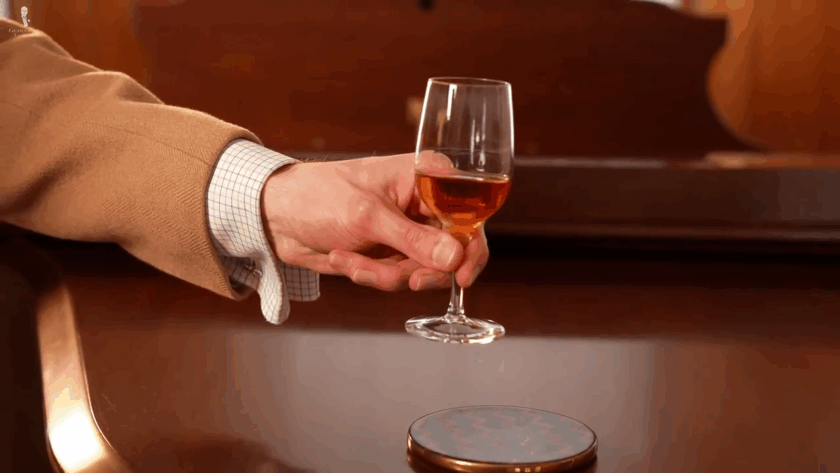
Snifter
Here we have an exception to a common rule in this guide: cup the lower bowl so your hand deliberately warms the brandy or cognac. Whether in a “traditional snifter grasp” or a full lower-bowl hold, align the palm with the liquid.
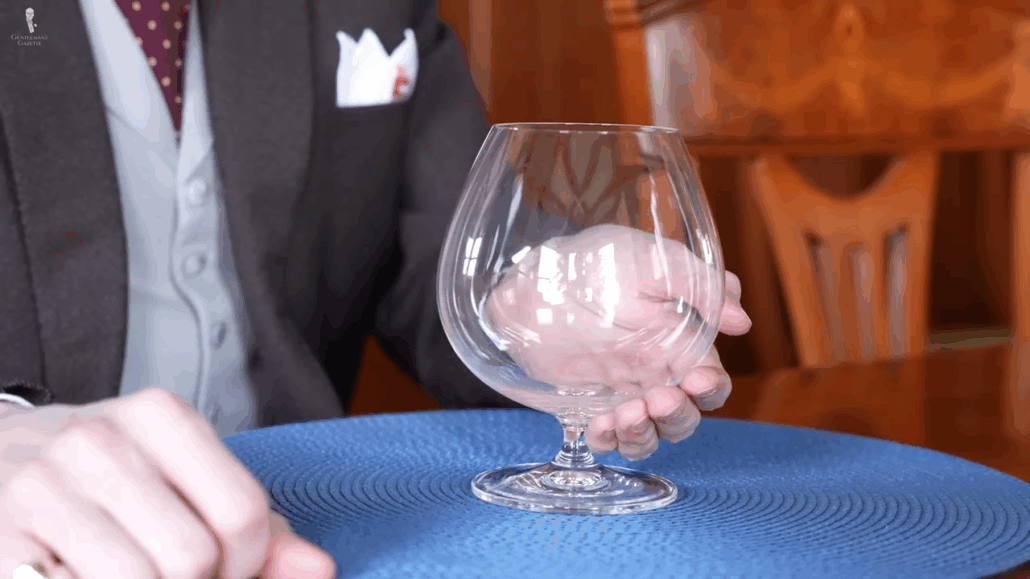
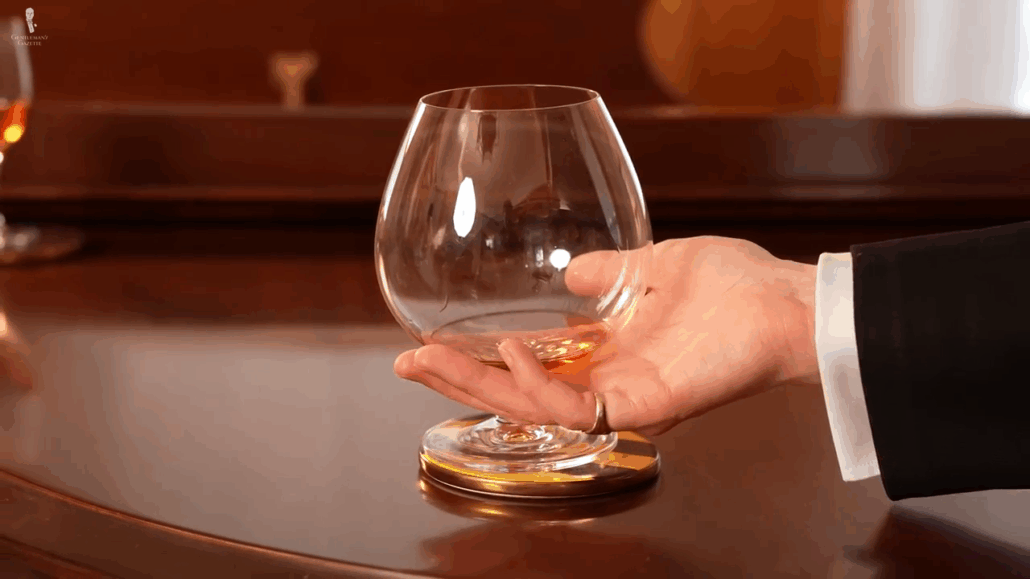
Water Glass
Stemmed? Hold the stem. Tumbler? Grasp mid-body for weight balance, because even etiquette yields to a heavy, full glass if it prevents a soaked lap.
Handing a Glass to Someone Else
Leave the proper grip point clear; never pass a glass by the rim. If you receive one rim-first, discreetly wipe it with a handkerchief.
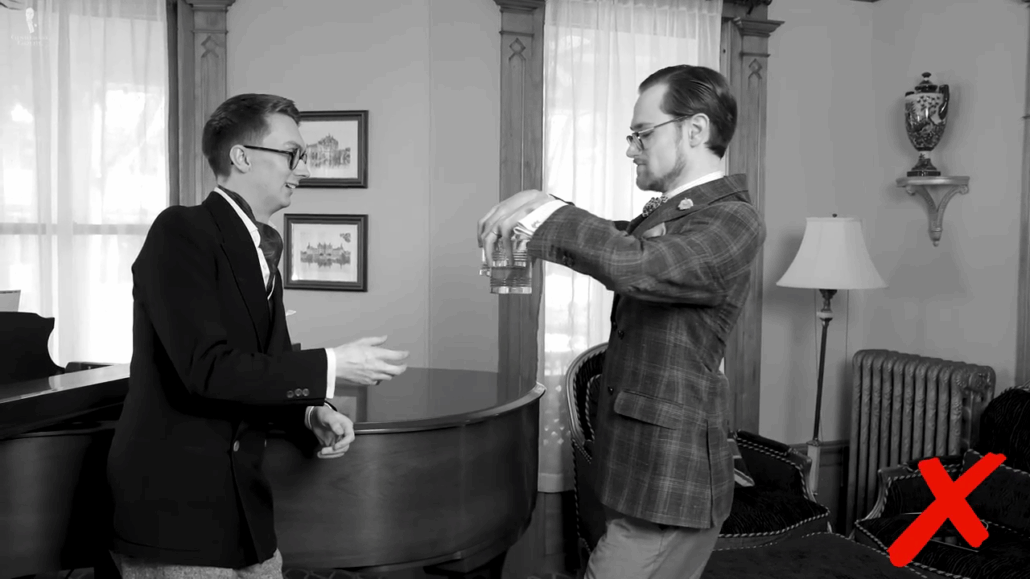

The Gentleman’s Rule of Thumb
If the drink should stay cold, keep your hands away from the liquid. If it should warm, embrace the bowl. Follow these principles and you’ll protect flavor, preserve composure, and look effortlessly at ease: three marks of the modern gentleman!
Have another tricky utensil or etiquette puzzle you’d like us to tackle? Share it in the comments, and we’ll raise a (properly held) glass to your suggestion.
Frequently Asked Questions
How to do I hold a glass properly?
It will depend on the glass in question, but the general rule is to use glass stems if applicable and try to heat the liquid with your hands, unless the glass is intentionally designed to.
Do you hold your pinky up?
The holding your pinky up rule with wine glasses is outdated and no longer seen as proper etiquette today
Are all glasses held the same?
No, all glasses have their unique styles in which they are handled.
How do I give a glass to someone else?
To make a hand off, you might have to temporarily hold it “improperly” in order to accommodate the other person.
The Gentleman’s Guide to Etiquette and Behavior

Gentlemen’s Body Language Etiquette
Discover the key gestures and posture every gentleman should master to communicate confidence and respect.

Office Etiquette Guide
Follow our comprehensive guide to workplace etiquette to make lasting positive impressions at work.

Modern Cell Phone Etiquette
Learn the dos and don’ts of smartphone use to maintain class and courtesy everywhere you go.
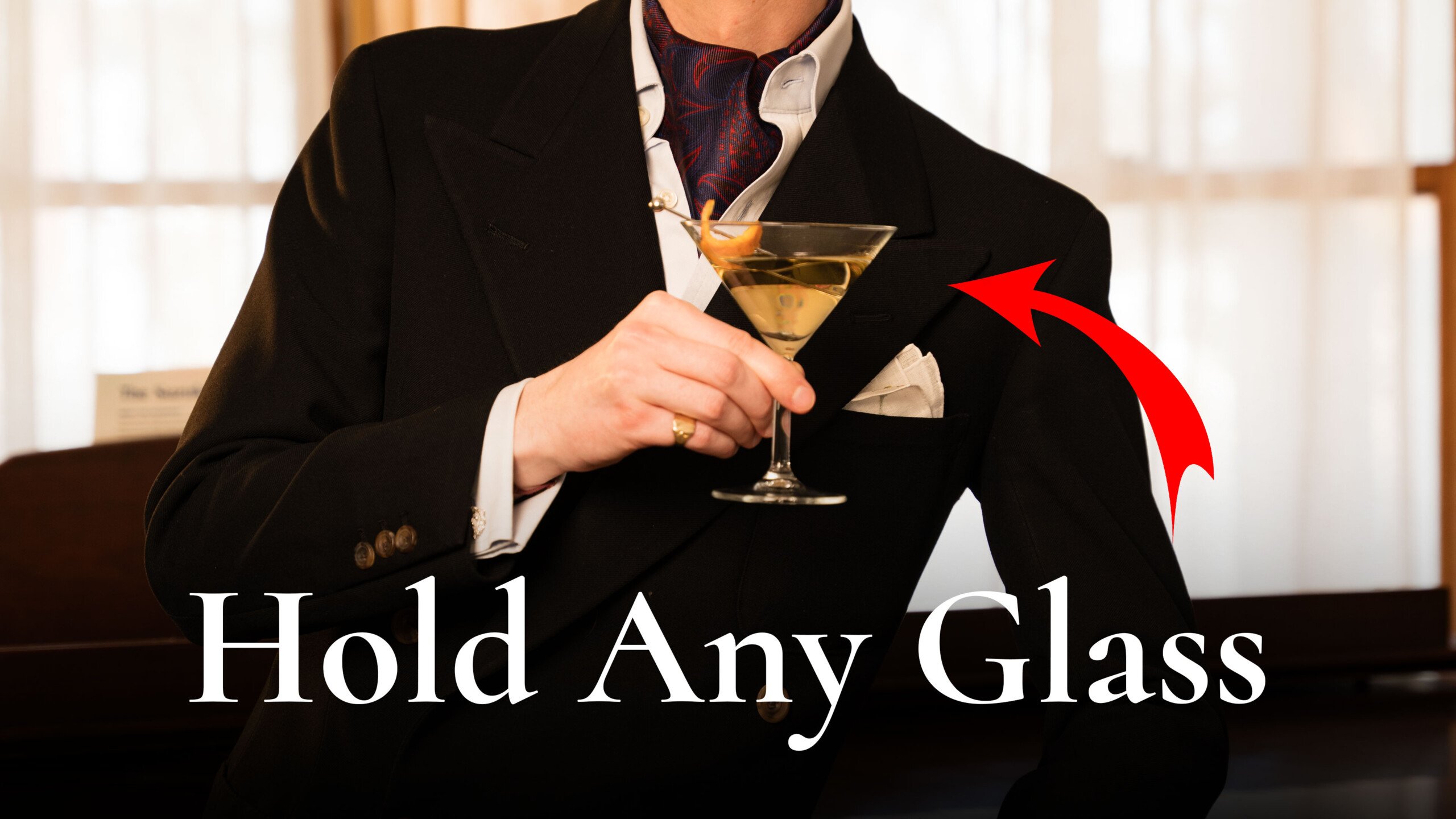

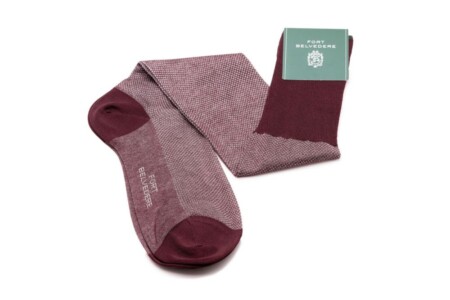
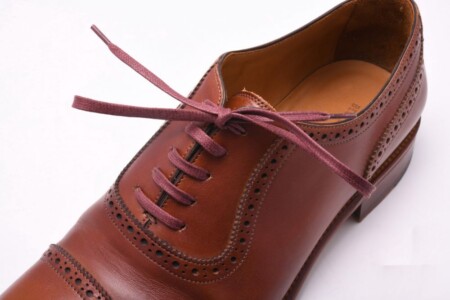
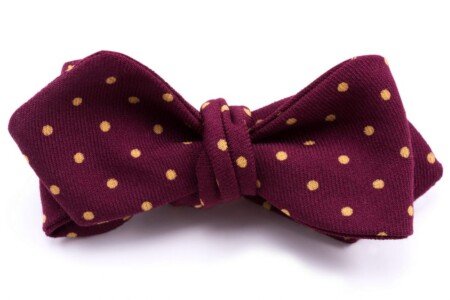
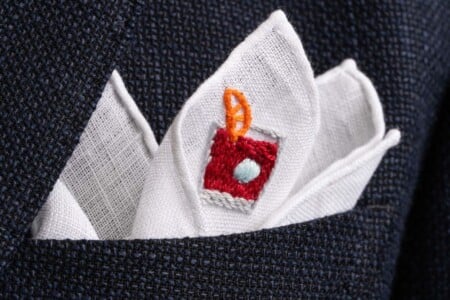

Thanks for the guide,
As a enjoyer of brandy myself, I must correct you on one thing :
If the directive of holding the glass in the palm to warm the liquor held true in the day, it’s no longer the case.
The purpose was to let fool tasting, volatile molecules evaporate before drinking, but now that the process is better controled, it’s no longer purposeful.
The cellar master intended for his drink to be drank room temperature. Warmer and the alcool start drowning the other tastes.
However is the bottle is noticably colder than room temperature (or the room is really too cold) warming it a little is good.
The ideal temperature sit between 18°C and 20°C
I wish to complement GG on providing these informative tutorials. As a more mature gentleman, I recall that these subjects were taught to us by family members and we practiced them at every meal and social gathering. Today this education is a rarity in many families. Huzzah, GG to the rescue! One addition that I have found helpful handling a heavy water glass, pilsner glass or whisky glass is placing your small (pinky) finger under the base. It adds stability if needed. I discovered this while recovering from a war injury and it works well for me.
Stay dapper everyone!
Another great lesson! I was taught that a brandy snifter had a large bowl and short stem so that you could cradle in your hand and warm it up. That supposedly helped the brandy or cognac to release its aroma, which you could then better appreciate.
One point I always tell young people is that when you are an event that serves alcohol, and someone comes by to take a photo of you and others, always be sure to set your glass somewhere out of sight of the photo. If you can’t do that, at least hide the glass behind you with your arm behind your back. Do not allow yourself to be photographed with any glass in your hand, even it contains only soda or is empty. The reason is because if the photo published anywhere, it makes you look a “drinker” and not the good kind. The only exception is if the event is an actual wine tasting event.
I thought I was the only one who did that! I find it helpful especially after my second drink.
While I appreciate these mini-lectures, I fear they will go unheeded unless we start with the basics.
Why don’t you, instead, teach these two or three generations around us (yes, I’m including Boomers here) not to wear a baseball cap or any other head covering when sitting down at a restaurant?
To my delight, I have seen a couple of restaurants, in Scottsdale and New York, that will refuse service if you come in with a baseball cap, in sandals or sneakers, or any other upper covering that’s not a shirt with a collar and buttons. Please, Gazette, emphasise this basic rule of dining etiquette that somehow got forgotten amongst the over-casualness of social interactions.